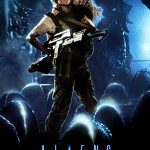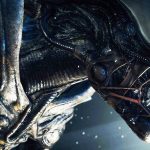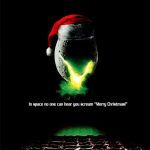Year by year, I find myself making new emotional divestments from Christmas and the winter holidays. Even when I was younger and still felt the Christmas spirit, I always sensed that there is something not quite right with how we collectively behave during this season. So many expectations, yet so many inevitable upsets and shortcomings. So many nonreligious (and religious) people celebrating Jesus’s birthday with ornaments, presents, and deforested fir trees. So much unbridled consumerism: people utterly possessed, shopping the same way as someone who has been wandering through the desert—parched—for days on end and desperate for the smallest sip of water.
My current sentiments towards Christmas developed gradually—that is, I didn’t just wake up one morning and decide that it wasn’t my thing. They started with objective observations in my youth, some of which are mentioned above, and became cemented into place a little more than a decade ago when I had a string of really fucking terrible holiday seasons. I still held on to the traditional ideals though, because abandoning them would be abandoning a way of life that was familiar and that is dear to so many. (I was already well off the beaten path and certainly didn’t need something like this to put me even more out of step with John and Jane Doe.)
Yet, due to the unpredictability of life and circumstances that were beyond my control, I was fighting a battle that I couldn’t win. I didn’t fully understand this, however, and every subsequent Christmas became increasingly grueling. Then suddenly something happened that deftly released me of this burden:
One year, after a party on Christmas Eve that I was obliged to attend, I returned to my place and sat in darkness on the couch trying to process everything that was happening in my life, as it existed then, on the backdrop of yet another Christmas season. It was after midnight, so early Christmas morning. I only wanted to shut my brain off and fall asleep, but couldn’t. I turned on the television and began flipping through the channels. Eventually, I saw that the movie Aliens ![]()
![]() had just started. “How peculiar,” I thought to myself, “that somebody would play Aliens on Christmas morning.” I sat there for quite a while just staring at the listing on the TV menu before me. The more I thought about it, the more I began to realize that watching Aliens early Christmas morning was somehow exactly the right thing for me to do at that moment. I was up until almost 3:00am giggling at the perfect portions of sci-fi action and violence that were being fed to me through my television screen. By the end of the movie, I could have guiltlessly and gleefully barked at the mythical fat man himself: “Screw you, Santa! Take a hike! And to hell with all your silver bells, candy canes, and asshole reindeer!”
had just started. “How peculiar,” I thought to myself, “that somebody would play Aliens on Christmas morning.” I sat there for quite a while just staring at the listing on the TV menu before me. The more I thought about it, the more I began to realize that watching Aliens early Christmas morning was somehow exactly the right thing for me to do at that moment. I was up until almost 3:00am giggling at the perfect portions of sci-fi action and violence that were being fed to me through my television screen. By the end of the movie, I could have guiltlessly and gleefully barked at the mythical fat man himself: “Screw you, Santa! Take a hike! And to hell with all your silver bells, candy canes, and asshole reindeer!”
Somehow, in such a ridiculous and absurd moment, I came to feel joy during a time of year that, for me, had become associated with profoundly unpositive feelings: feelings that then compounded and became so much more than just an absence of joy.
Now, even after so much time, I continue to find new benefits from my break with Christmas. For example, I only buy gifts for people when I find something that is genuinely useful, instead of subscribing to the bullshit notion of compulsory gift-giving. Not only does this save me time and money, but it also makes the gesture of giving someone a present more meaningful. A couple of years back, I bought chocolate coffee beans and chocolate almonds for many of my coworkers. Last year, I didn’t buy anybody anything! This year, I gave presents to two people: 1) a Batman Christmas tree ornament for one of my best childhood buds, and 2) a 32″ HDTV and Blu-Ray disc player for my hippie uncle who had never before laid his eyes on a high-definition television signal.
Sometimes I do miss the sweet intoxication of winter holiday cheer and everything that comes with it—eating too much, drinking too much, spending too much—but not for very long. When I visited my uncle on Christmas day, he was eating a Wendy’s hamburger meal and watching the third annual Kaiju Christmas ![]() , a 96 hour Godzilla marathon from December 23rd through the 26th on the El Rey Network
, a 96 hour Godzilla marathon from December 23rd through the 26th on the El Rey Network ![]() . He was already happy, and the new TV and disc player were just a bonus. After all, HD Godzilla holds absolutely no meaning whatsoever (but we did take a break a little later in the day to watch Baby Driver
. He was already happy, and the new TV and disc player were just a bonus. After all, HD Godzilla holds absolutely no meaning whatsoever (but we did take a break a little later in the day to watch Baby Driver ![]()
![]() together and he finally got his first dose of modern television fidelity).
together and he finally got his first dose of modern television fidelity).
These days, watching Aliens during the holiday season is just one of those things that I always do. It makes me feel good, in a weird way, and helps keep me grounded during a crazy time of the year. And given recent events, I think I’m going to start mixing in some old school Godzilla flicks. I’ve been meaning to watch them anyway and now I have exactly the reason I needed to make it a priority.





![Fire-breathing Godzilla wearing a Santa hat and holding a candy cane. [Formatted]](http://unwisdom.org/chadspace/wp-content/uploads/godzilla-000000-f500.jpg)
![Michael Crichton's "Jurassic Park" book cover. [Formatted]](http://unwisdom.org/chadspace/wp-content/uploads/michael-crichton-000000-f500.jpg)